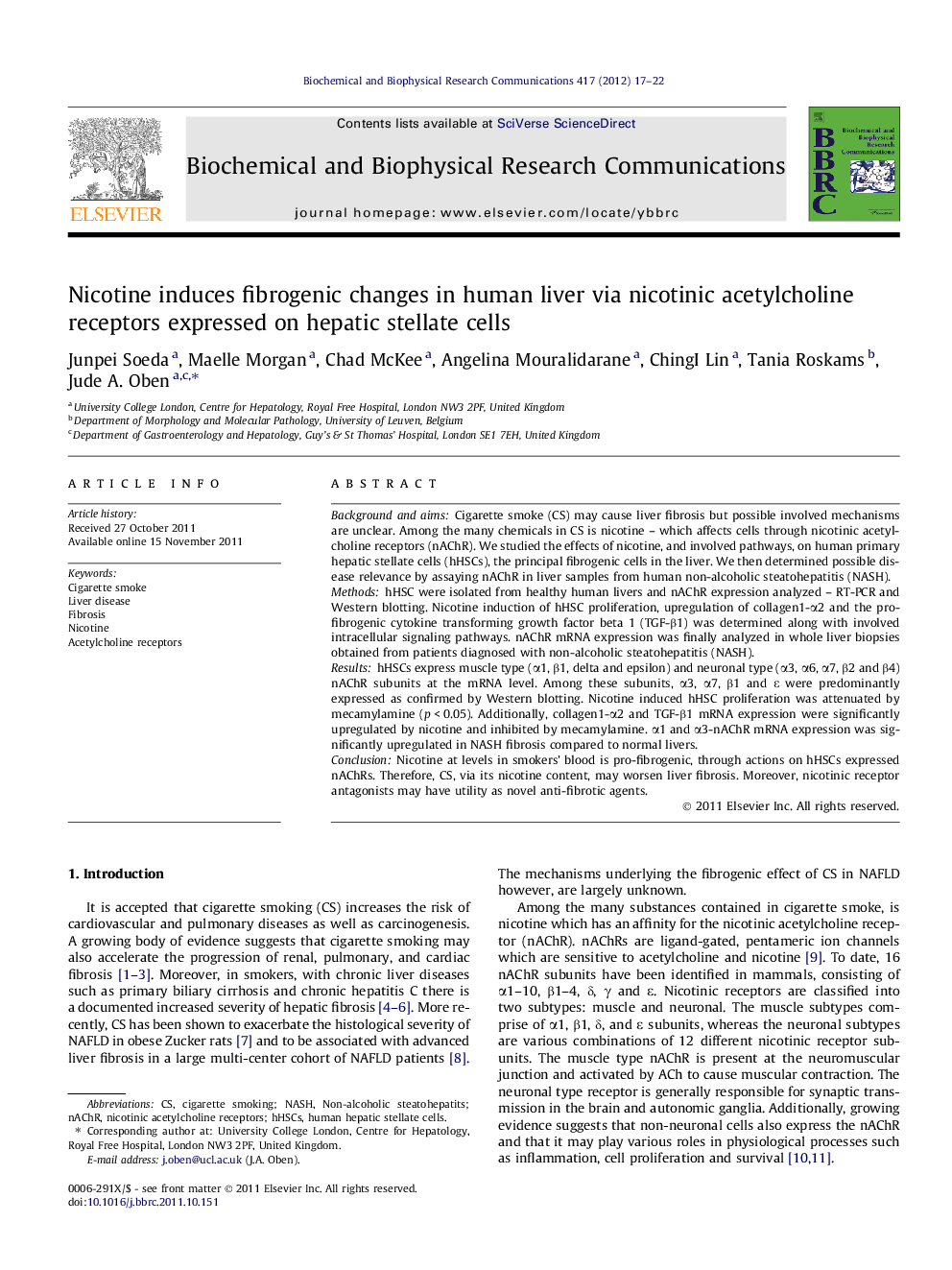| کد مقاله | کد نشریه | سال انتشار | مقاله انگلیسی | نسخه تمام متن |
|---|---|---|---|---|
| 1930070 | 1050489 | 2012 | 6 صفحه PDF | دانلود رایگان |

Background and aimsCigarette smoke (CS) may cause liver fibrosis but possible involved mechanisms are unclear. Among the many chemicals in CS is nicotine – which affects cells through nicotinic acetylcholine receptors (nAChR). We studied the effects of nicotine, and involved pathways, on human primary hepatic stellate cells (hHSCs), the principal fibrogenic cells in the liver. We then determined possible disease relevance by assaying nAChR in liver samples from human non-alcoholic steatohepatitis (NASH).MethodshHSC were isolated from healthy human livers and nAChR expression analyzed – RT-PCR and Western blotting. Nicotine induction of hHSC proliferation, upregulation of collagen1-α2 and the pro-fibrogenic cytokine transforming growth factor beta 1 (TGF-β1) was determined along with involved intracellular signaling pathways. nAChR mRNA expression was finally analyzed in whole liver biopsies obtained from patients diagnosed with non-alcoholic steatohepatitis (NASH).ResultshHSCs express muscle type (α1, β1, delta and epsilon) and neuronal type (α3, α6, α7, β2 and β4) nAChR subunits at the mRNA level. Among these subunits, α3, α7, β1 and ε were predominantly expressed as confirmed by Western blotting. Nicotine induced hHSC proliferation was attenuated by mecamylamine (p < 0.05). Additionally, collagen1-α2 and TGF-β1 mRNA expression were significantly upregulated by nicotine and inhibited by mecamylamine. α1 and α3-nAChR mRNA expression was significantly upregulated in NASH fibrosis compared to normal livers.ConclusionNicotine at levels in smokers’ blood is pro-fibrogenic, through actions on hHSCs expressed nAChRs. Therefore, CS, via its nicotine content, may worsen liver fibrosis. Moreover, nicotinic receptor antagonists may have utility as novel anti-fibrotic agents.
► Cigarette smoke may induce liver fibrosis via nicotine receptors.
► Nicotine induces proliferation of hepatic stellate cells (HSCs).
► Nicotine activates hepatic fibrogenic pathways.
► Nicotine receptor antagonists attenuate HSC proliferation.
► Nicotinic receptor antagonists may have utility as novel anti-fibrotic agents.
Journal: Biochemical and Biophysical Research Communications - Volume 417, Issue 1, 6 January 2012, Pages 17–22